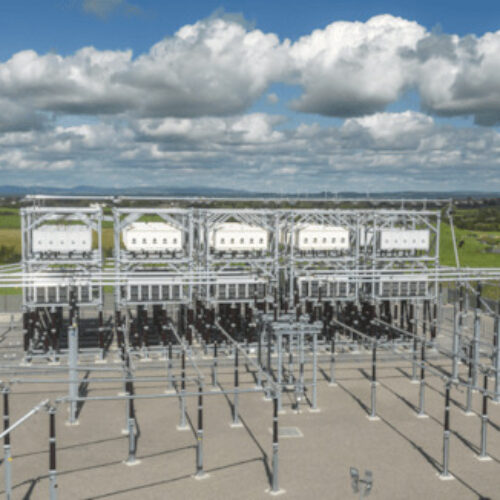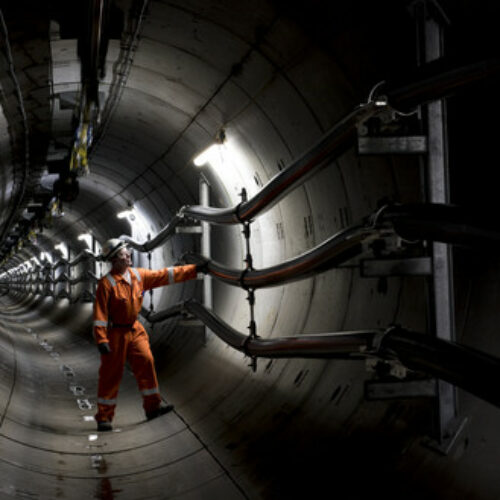A House of Lords report calling for decarbonisation of the energy system to be relegated in favour of security of affordable supply has been slammed by green industry critics, who have called its conclusions ‘out of touch’ and ‘backward-looking’.
The report by the House of Lords Select Committee on Economic Affairs claims the three objectives of UK energy policy – ensuring security of supply while decarbonising at lowest cost – are not complementary in the present day.
It argues that generation of electricity from fossil fuels is cheaper than renewable sources and that subsidies provided to clean energy generation have resulted in considerably higher costs for consumers.
“To reduce carbon emissions, governments have subsidised renewables, passing on the cost to consumers in their electricity bills. The average domestic electricity bill was 58% higher in 2016 than it was in 2003,” it argues.
However, the same report points out that green subsidies have increased consumer bills by just 10% in 2014 (the most recent figures used) and fails to mention in detail price increases caused by the rising cost of fossil fuels, reduced consumer spending on energy due to reduced demand and the rapidly declining cost of solar and wind technologies.
In response, members of the renewable energy sector have hit back at this claim, with Paul Massara, chief executive of North Star Solar and former CEO of RWE npower, highlighted the ‘out-of-date claims’ in the report.
“In reality, renewables like solar or onshore wind are already cost-competitive with fossil fuels in many parts of the world, as costs have plummeted with increasing deployment,” he said.
The report also questions the costs of increased renewable energy sources on the UK system, calling for greater clarity on the issue. However, a number of opponents to the report’s findings have drawn attention to the recent work by the UK Energy Research Centre (UKERC), which found that greater grid flexibility can restrict possible system costs.
Similarly a report from consultants Aurora Energy Research late last year detailed how solar and storage together can actually have a negative cost to the grid, essentially providing a net benefit.
Dr Jonathan Marshall, energy analyst at the Energy and Climate Intelligence Unit (ECIU), pointed that considering Professor Dieter Helm, a director at Aurora, was one of the key witnesses during the Lords development of the report, “it is a little baffling, on the surface of it, why this report did not feature in the Committee’s analysis”.
The report continues to claim that the demands of the Climate Change Act 2008 have resulted in a “trade-off” between energy objectives that has come down on the side of decarbonisation, putting security of supply at risk and increasing household energy costs.
Government intervention, the report claims, has meant that there is no longer a competitive market for electricity generation and that security of supply must now become the dominant principle of UK energy policy.
However, the renewable energy sector has hit back at many of the conclusions of the report for its use and presentation of dated information.
Michael Grubb, professor of international energy and climate change policy at University College London, has said the report is “marred by a slanted presentation of conclusions and statistics… comparing apples with oranges in a generalised claim that generation from fossil fuels is cheaper than renewables”.
He also criticised the report for failing to acknowledge that the costs of backing up renewables, deemed too high by the lords, have proved far less than predicted with the capacity market mechanism serving to deliver low cost energy and ensure security of supply.
Marshall also made this point and said: “Despite overwhelming evidence to the contrary (of which a considerable amount is referenced – and unfortunately ignored), the 13-member committee maintains that the threat of power cuts looms on the UK’s horizon, justifying yet another swing in policy to ensure that ‘the lights stay on’.
“…the implementation of the capacity market this coming winter ensures that a secure and reliable supply is simply no longer a concern.
“Overall, In failing to take account of the most up-to-date and forward looking studies on systems costs, the Committee has missed a trick, recycling old and disproven arguments at the expense of providing a useful and detailed analysis of an ever-increasing body of evidence.”
Despite these criticisms, commentators have picked up one of the report’s recommendations, namely to allow all technologies to compete in a single auction for electricity generating capacity where the desired level of carbon emissions and capacity is fixed.
Currently established, or ‘pot 1’, technologies are excluded from capacity market and contracts for difference (CfD) auctions. The Lords committee states a technology neutral mechanism would enhance security as well as competitiveness.
Commenting on this recommendation, Massara said: “It’s a shame this is a backward-looking report with many out-of-date claims, because elsewhere, the peers make sensible recommendations. Boosting the use of market mechanisms for example, so that all-technologies can compete on a level playing, is a welcome proposal.”





